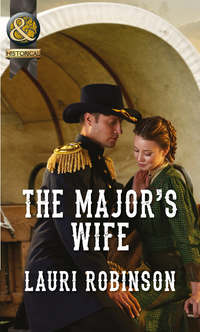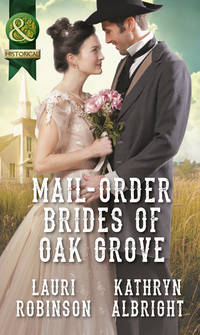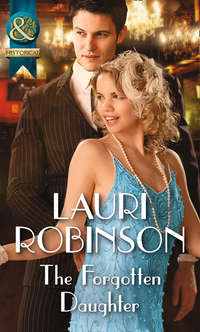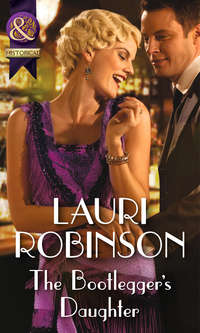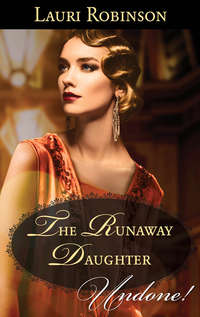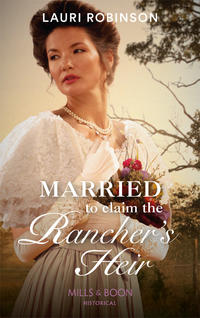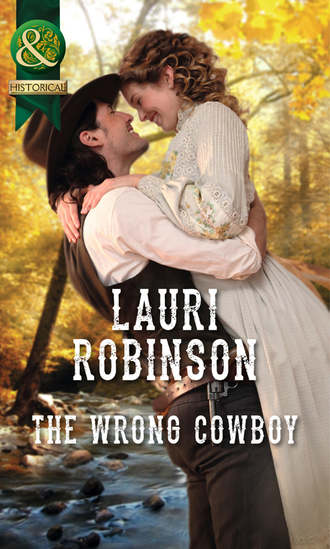
Полная версия
The Wrong Cowboy

“He’s not at the ranch, either,” Mr. Burleson said then.
“Mr. Wagner?” she asked, even though she knew that was exactly who Stafford Burleson meant.
“Yes.”
“Where is he?”
He shrugged. “Texas. Mexico.”
Marie couldn’t deny a quick flash of relief as it washed over her. Maybe she wouldn’t have to face the marriage issue right away. She and the children could get settled in and …
“For how long?” she asked.
His gaze never left the road. “Can’t rightly say. Could be next spring before he gets back.”
“Next spring?”
Panic overtook any sense of relief. Her funds were almost gone. The children would starve to death by then, unless … She shivered at the thought, but unfortunately Stafford was her only hope.
Something in his eyes, the way they shimmered, had her mouth going dry, her nerves tingling as though a storm was approaching. Maybe there was another option.
“Who lives at Mr. Wagner’s ranch in his absence?”
“Me.”
AUTHOR NOTE
Welcome to THE WRONG COWBOY. If any of you have read THE COWBOY WHO CAUGHT HER EYE, Marie was the woman on the train with all the children. From the moment I typed that minor reference I knew I had to write her story.
In doing so, I was also provided with the opportunity to incorporate an inanimate object that used to drive me crazy into one of my books. Our previous home had a wood stove that I could build a fire in blindfolded. Then we moved into this house and I encountered the stove from—well, you know … That stove and I battled … I have a scar from when the door mysteriously swung shut, hitting me on the head. Mysteriously because I was the only one at home. I am glad to say that stove never got the better of me—not completely—before we replaced it years ago.
Unfortunately the stove Marie encounters does best her—but everything happens for a reason.
I hope you enjoy meeting Marie, Stafford and all the children who eventually provide Marie with the family she’s always wanted.
The Wrong
Cowboy
Lauri Robinson

www.millsandboon.co.uk
DEDICATION
To my wonderful friend Jean.
Thanks for the lunch dates, the brainstorming, and the research trips.
LAURI ROBINSON’s chosen genre to write is Western historical romance. When asked why, she says, ‘Because I know I wasn’t the only girl who wanted to grow up and marry Little Joe Cartwright.’
With a degree in early childhood education, Lauri has spent decades working in the non-profit field and claims once-upon-a-time and happily-ever-after romance novels have always been a form of stress relief. When her husband suggested she write one she took the challenge, and has loved every minute of the journey.
Lauri lives in rural Minnesota, where she and her husband spend every spare moment with their three grown sons and four grandchildren. She works part-time, volunteers for several organisations, and is a diehard Elvis and NASCAR fan. Her favourite getaway location is the woods of northern Minnesota, on the land homesteaded by her great-grandfather.
Contents
Cover
Introduction
AUTHOR NOTE
Title Page
DEDICATION
About the Author
Chapter One
Chapter Two
Chapter Three
Chapter Four
Chapter Five
Chapter Six
Chapter Seven
Chapter Eight
Chapter Nine
Chapter Ten
Chapter Eleven
Chapter Twelve
Chapter Thirteen
Chapter Fourteen
Chapter Fifteen
Chapter Sixteen
Chapter Seventeen
Extract
Copyright
Chapter One
August, 1884, Dakota Territory
Stafford Burleson prided himself on a few things—he wasn’t a quitter, his cooking wasn’t all bad, he was a mighty fine carpenter and he was quick on his feet. His wits were good, too. He was known for coming up with a plan at a dead run, yet right now he found himself dumbfounded. “What?”
“Mick’s mail-order bride is waiting for him at the hotel in Huron.” Walt Darter’s scratchy voice repeating exactly what he’d said a moment ago made about as much sense the second time around as it had the first.
This time Stafford added a few more words to his question. “What are you talking about?” He set his cup down and dug his fingers into hair that sorely needed a good cutting. His scalp had started to tingle and he scratched at it. Eerily. “Mick didn’t order a bride.”
“That’s not what she says.” Walt couldn’t have looked more stone-cold serious if he’d been standing before a judge and jury.
“Who?”
“Miss Marie Hall.” The old man’s face was sunburned from years of riding in the summer sun, and as he said her name a grin formed and his chest puffed with pride as if he’d just announced he’d found a goose that laid golden eggs.
The woman’s name was completely unknown and Stafford pondered that. No one from Huron had been out this way for several months. Not that it was expected. The little town of Merryville had sprung up around the people who chose to stay behind when the railroad camp packed up to follow the tracks westward. There weren’t too many businesses there yet, but he and Mick now bought their supplies in Merryville. It was only a few miles north of their land, and the railroad company had promised that, when the line was done, a depot would be built in the settlement, which meant cattle could be shipped and received there. It was what he and Mick had predicted would happen when they settled on their tracts of land and formed a partnership for the Dakota Cattle Company.
Their plan, to build one of the largest cattle operations in the north, was falling into place more smoothly than the railroad line. Although Stafford would be the first to admit—and he often did—they still had plenty of work to do before they could sit back and savor the rewards of what they’d sowed.
Right now, they were still driving in herds every year, consisting of various breeds to ensure nothing would wipe them out. Not weather or disease. He’d brought in a hearty line of Herefords out of Texas this spring, and Mick had left a few weeks ago to go farther south, into Mexico, to purchase some of the Spanish cattle he’d read about.
A grin tugged at Stafford’s lips. Mick must have stopped in Huron, let it be known he was heading south. “You almost had me on that one, Walt,” Stafford said, letting out a sigh. In the five years since they’d settled out here and claimed hefty shares of glorious land from the government, Mick had talked about finding a wife, especially during the long cold winters. Stafford, having had his fill of women before he left Mississippi, told Mick countless times what a bad idea that would be. He went so far as to suggest Mick heat up a rock on the cookstove if his bed was that cold, had even hauled home a few good-size stones now and again, just to keep the teasing going. Practical jokes were never far apart between the two of them. Mick was like that—a jokester.
Half the men in the territory, including Walt, had heard Mick spout off about finding a wife, and the old jigger must be trying to carry on the joking. “So, what’s your real reason for being here?” Stafford asked, picking his cup up again. “No one rides a day and a half just to say hello.”
The deep wrinkles in Walt’s face remained as the merriment slipped from his eyes and the grin transformed into a grimace. The kind people make when they’re delivering bad news. A chill raced up Stafford’s arm and he set his cup back down.
“That is the reason I’m here, Stafford. There’s a woman claiming to be Mick’s bride, or soon to be, at the hotel.” Walt shook his head as if he didn’t quite believe what he was saying, either. “And she’s got a passel of kids. Six I think, but I could be wrong. I’d have brought them out,” Walt went on, after taking a sip of his coffee. “But I ain’t got a rig that big.”
The eerie sensation was back, suggesting the man was serious, yet Stafford, as usual, stuck to his guns. “The joke’s on you, Walt,” he said. “Mick’s not here. He and a few cowhands left last month. I don’t expect them back until the snow flies, or next spring if he buys cows.”
“Oh,” the man said, as if that was news. Bad news. Shaking his head, he added, “I ain’t trying to fool you, Stafford. There’s really a woman, and she’s really claiming to be Mick’s bride.”
Stafford bolted out of his chair and was halfway across the room before he knew he’d moved.
“What are you gonna do?” Walt asked.
“What am I going to do?”
Rubbing his stubble-covered chin, Walt appeared to be contemplating the ins and outs of the world. “Well,” he said slowly. “I suspect you could hire one of Skip Wyle’s freight wagons.”
Growling and rubbing at his temples, Stafford silently called both Mick and Walt a few choice names. His question had been hypothetical. He didn’t need a freight wagon. Mick hadn’t been any more serious when he’d talked of marriage this time than he had been dozens of times before.
Don’t be surprised if I come home with a wife, Mick had shouted as he’d kneed his horse out of the yard. But he said those same words practically every time he left for town. As usual, Stafford had replied that Mick had better add on to his cabin first. His partner’s reply had been the same suggestion as always. That Stafford could do that as a wedding gift, since he was the one who liked to build things.
The sensation that came over Stafford was that of breaking through ice on a frozen lake. That had actually happened to him once, and Mick had been there to pull him out and haul him home.
Right now he wasn’t remembering how sick he’d been afterward, how he still hated walking on frozen water. Instead, he was recalling how his parting conversation with Mick hadn’t ended as usual. This time Mick had told Stafford that he’d better hurry up, have the cabin done by the time he returned.
“Damn,” Stafford muttered before he spun to stare at Walt who was refilling his coffee cup from the pot on the stove. Another shiver rippled down his spine. “Six kids?”
Walt nodded.
* * *
Marie Hall sat on a patch of green grass in the field next to the hotel, watching Terrance and Samuel play with the dog they’d discovered begging for food last week. A stray, possibly left by someone traveling through, that’s what Mrs. Murphy, the aging woman who cooked for the restaurant and who’d saved scraps for the animal, had said.
Marie smiled to herself, for the dog—white with brown patches—had been just the diversion the boys needed. Marie shifted her gaze to make sure Beatrice and Charlotte were still picking daisies, and then she glanced toward Charles and Weston. Never far apart, the youngest of her wards were chasing grasshoppers and mimicking them, which had Marie chuckling at their somewhat awkward leaps. The twins were only four so their coordination wasn’t the best.
They were adorable, though. All six of the Meeker children. Strangers on the train, and here in town, had commented they all looked identical, not just Charles and Weston, and would ask how she could tell them apart. It was easy. Perhaps because she knew them so well.
Like right now. “Charles,” she said warningly. “Do not put that in your mouth.”
Little blue eyes surrounded by thick lashes looked up at her mournfully. Marie forced her gaze to remain stern as she shook her head. He dropped the pebble and returned to jumping, following his brother.
A heavy sigh settled deep in Marie’s lungs. It had taken four months to break him of sucking his thumb, and ever since the fire, rather than his thumb, Charlie was forever putting things in his mouth. Anything he could find. It was comforting for him, she understood that, but also extremely dangerous. Some days she wondered if she should allow him to suck his thumb, just until things were settled. The poor dear had been through so much.
They all had been through a lot, and it wasn’t over.
“Marie Hall?”
Startled, for she hadn’t heard anyone approach, Marie snapped her head around so fast her neck popped, making her flinch.
The bright sun only allowed her to make out the silhouette of a tall man with a wide-brimmed hat. Gathering her skirt, she rose to her feet. “Yes,” she answered, standing and shading her eyes with one hand.
Besides the hat, he had on a gun belt and a black leather vest. Dark brown hair hung past his shoulders and his chin was covered with a similarly colored beard. Marie couldn’t stop the involuntary shudder that raced over her skin. She’d come to understand most men out here wore guns, but she’d sincerely hoped Mick Wagner would be more civilized.
A lump formed in her throat. “Yes,” she repeated. Her nerves wouldn’t allow her to offer a hand in greeting, so she rested hers atop the heads of the twins who now stood one on each side of her. “I’m Marie Hall.”
“Are you the cowboy that’s gonna be our new da?”
That was Weston. He was the most verbal of the twins, and Marie stopped herself short of correcting him to say father instead of da. She had more important things to worry about. Such as how rough around the edges Mick Wagner appeared to be.
The others had gathered close, and Terrance pushed Weston’s shoulder. “We don’t need a new father.”
Being the oldest, Terrance was greatly opposed to Marie’s plan. She could understand a boy of ten wouldn’t want a new father, and she’d tried to explain they didn’t have another option. By proxy, Mick Wagner was now responsible for all six Meeker children. Making the man understand they came along with her was a concern. She hoped, with all she had, he would see their inclusion as a benefit.
There had been rumors, after a man named Walt Darter had ridden out to Mr. Wagner’s ranch last week, that Mick hadn’t ordered a bride. No one mentioned it to her, especially not Mr. Darter. He’d simply said Mick wasn’t home but that a message had been sent to him. She’d thanked Mr. Darter for his efforts and never let it be known she’d heard the whispers or seen the finger-pointing. Partially because it wasn’t a rumor. Mick Wagner hadn’t ordered a bride. And partially because she had no idea what she and the children would do if he didn’t claim them—soon.
“I—” She had to clear the squeak from her voice. “I’m assuming you’re Mr. Wagner.”
“Nope,” the man said.
Marie was still processing a wave of relief when Weston asked, “You’re not our new da?”
“Nope,” the man repeated.
“Are you a cowboy?” the child asked.
“Yep.” He winked at Weston. “Just the wrong cowboy.”
Marie couldn’t let Weston’s questions continue, yet hers floundered as she said, “Is Mr. Wagner...”
“I’m his partner,” the man said. “Stafford Burleson.”
Terrance snorted and bumped his shoulder into Samuel’s. “Stafford,” he whispered, as if finding great humor in the name. Samuel, seven and always eager to follow his older brother, snickered, as well.
Marie chose to ignore them. She’d learned, while being trained as a nursemaid, which battles were worth fighting when it came to children of every age. This wasn’t one. Besides, she couldn’t quite fathom a cowboy having such an unusual name, either. Not to mention she was more than a bit relieved to know this wasn’t the man she’d told everyone from here to Chicago had ordered her as a bride. “Is Mr. Wagner in town?” she asked. Several people had told her Mick Wagner’s ranch was a distance from Huron—too far for her and the children to travel alone.
Tipping the edge of his hat back, and giving her a very penetrating stare from eyes that looked to be as gray as a storm cloud, the man acted as if he wasn’t going to answer her questions.
Marie’s nerves started jumping faster than the grasshoppers the twins had been chasing. She’d been charging things in Mr. Wagner’s name since leaving Chicago. Soon the bills would be more than she’d be able to repay. That wasn’t her major concern—the children were—but with each day that passed, their financial situation had started to trouble her more and more.
Finally, when the air in her lungs had built up a tremendous pressure from his stare, Mr. Burleson said, “I’m here to take you to Mick’s place.”
It wasn’t the answer she’d expected, but her sigh was so long she wondered if her toes had been holding air. When it was all out, she nodded. “Well, thank you. We’ve been expecting he’d send someone.” In truth she’d been praying he’d come, or send someone, but she’d never allow the children to know she’d been worrying about the outcome of their adventure.
The man nodded. “We can head out in an hour.”
“An hour?” Still shaky with relief, it took Marie a moment to process his statement. Her thoughts shifted to everything that needed to be done before they left, and she shook her head. “That’s not possible. We’ll leave tomorrow morning.”
Mr. Burleson’s stormy eyes glared again. “We’ll leave in an hour.”
“No, we won’t.” She spun about, gestured to the children. “Gather your playthings. It’s time to return to our rooms.”
They minded without question, for once, and she turned back to the man. “We’ll be ready to leave tomorrow morning, after breakfast.”
“It’s barely noon,” he said. “We can get a good number of miles under our belt yet today.”
“Tonight is bath night, Mr. Burleson,” she said, holding her ground. When it came to the children and their needs she’d argue until the sun set—dealing with the solicitor back in Chicago had taught her to not back down. No matter how frightening it was. “I will not have the children’s schedule upset.”
“You will not—”
“That’s correct,” she interrupted. “I will not.” No good nursemaid would, and she was the best nursemaid that had ever come out of Miss Wentworth’s training course. The owner herself had said as much. Marie had a document that proclaimed it in writing. She’d used it as a testimonial when interviewing for positions. Not that she’d need it anymore. Abandoning the Meekers was something she’d never do. That’s what she’d told Mr. Phillips, the solicitor, back in Chicago, as well as several other people who’d suggested such a thing. She’d been hired as their nursemaid, and she would fulfill her duties.
The children had gathered around again, holding their toys and looking at her expectantly. So was Mr. Burleson. With so much to do, Marie couldn’t waste any time. “You can see to the hotel bill and the train fares, Mr. Burleson, and then bring the wagon around. A large number of our possessions can be loaded this afternoon.”
“Hotel bill? Train fares?”
“Yes. For the children.” She didn’t explain she’d paid her own way, by selling her necklace and ear bobs. It wasn’t necessary. The letter she’d written Mr. Wagner prior to leaving Chicago explained it all. How his cousin, Emma Lou Meeker, and her husband, John, had perished in the fire that burned down the entire block surrounding the gas-fitting firm Mr. Meeker had owned. And how, a mere week after the funeral, Mr. Phillips had appeared at the Meekers’ big brownstone home, explaining that the bank owned everything. He’d stated the children were to be put in an orphanage until Mr. Wagner could be notified. Upon his approval, the children could then be put up for adoption. Mr. Phillips had gone on to explain a few neighboring families were interested in adopting one or two.
Marie held off her shiver of horror. That would not happen. Either option. The only chance the children had of staying together was Mr. Wagner. Emma Lou had listed her cousin as the benefactor on a small life insurance policy. The paperwork for the policy was safely tucked away, and Marie would present it to Mr. Wagner upon their meeting. The policy would be more than enough to reimburse him for the travel and lodging expenses the children had incurred, though not enough to raise all six children to adulthood. That was something Mr. Wagner would have to see to. She’d help, of course, as much as possible. She owed Emma Lou and John for paying off her debts, and this was how she could repay their kindness. If not for them she wouldn’t have the small amount of money she did have. Above all, though, the children needed her, and she would not let them down.
Clapping her hands, she said, “Children.”
* * *
Stafford stared as the woman, nose in the air, marched away, followed by the flock of red-headed kids like a mother duck leading her brood to water. Or like Custer leading the 7th Cavalry Regiment into battle. That conflict might have had a different outcome if Marie Hall had been leading the troops. She fired demands like bullets.
He’d met her kind before. Saw the way she shuddered and the disdain in her eyes as she took in his appearance. So he needed a haircut and a shave. That was none of her business. He’d considered visiting the barbershop before meeting her, making himself presentable, but curiosity had won out. The chance to get a glimpse of the woman who was claiming Mick had ordered her had been too strong when Walt said the bride-to-be was behind the hotel in Huron.
Stafford hadn’t planned on heading home until tomorrow, either, but her haughty attitude had changed his mind the moment she’d stood, lip curled, as her eyes roamed over him from nose to tail like he was a mangy cow on the auction block.
His partner didn’t have any more time to visit the barber than he did—the cattle company kept them both busy. Then again, it was highly unlikely Mick and Marie Hall had ever met. They might have corresponded though. Most likely last spring, while he’d been gone, down in Texas rounding up cattle. Mick had been home, then, and she could have sent him a picture. His partner was a sitting duck when it came to a pretty woman. He went half crazy over them. Women, foolish as they were, fell for Mick’s boyish charm, too.
Stafford took another long look as the woman turned the corner, kids trailing behind.
He’d never seen so many freckles. Not all at once. And not one of those freckle-faced little kids looked anything like her. They were all fair skinned with copper-colored hair, whereas she had dark hair and eyes in shades of brown that teetered on black. That had him wondering what happened to her husband. The father of all those kids, or da as one had called him. That little guy had quite a lisp, and as much as Stafford hadn’t wanted it to, a grin had won out when the kid spoke.
They disappeared around the corner of the hotel, every last one of them. Stafford took a step to follow, but paused. Miss Marie Hall. That’s what Walt had called her. Miss. It made sense, too, considering she didn’t look old enough to have one kid, let alone six.
Whose kids did she have?
Stafford scratched his chin, which itched due to the inch-long whiskers. Mick may have ordered a bride, but there was no way he’d have ordered six kids. That much Stafford would bet his life on.
Huron was a busy place, the railroad made it so, and someone knew something. She’d been here over a week, and with a town this size, people would know her story. He’d start at the depot. Find out about those fares she was referring to, as well as a few other things.
An hour later, Stafford concluded Mick was going to owe him more than money when he finally returned. Those weren’t her kids—as he’d suspected. They were a stack of orphans she’d rustled up after their parents died in a fire. The ticket master had told him that, and how she’d promised Mick would pay their fares upon his arrival. She’d paid her own fare, though, which didn’t make a lot of sense and left more questions in place of the few Stafford had found answers for.




